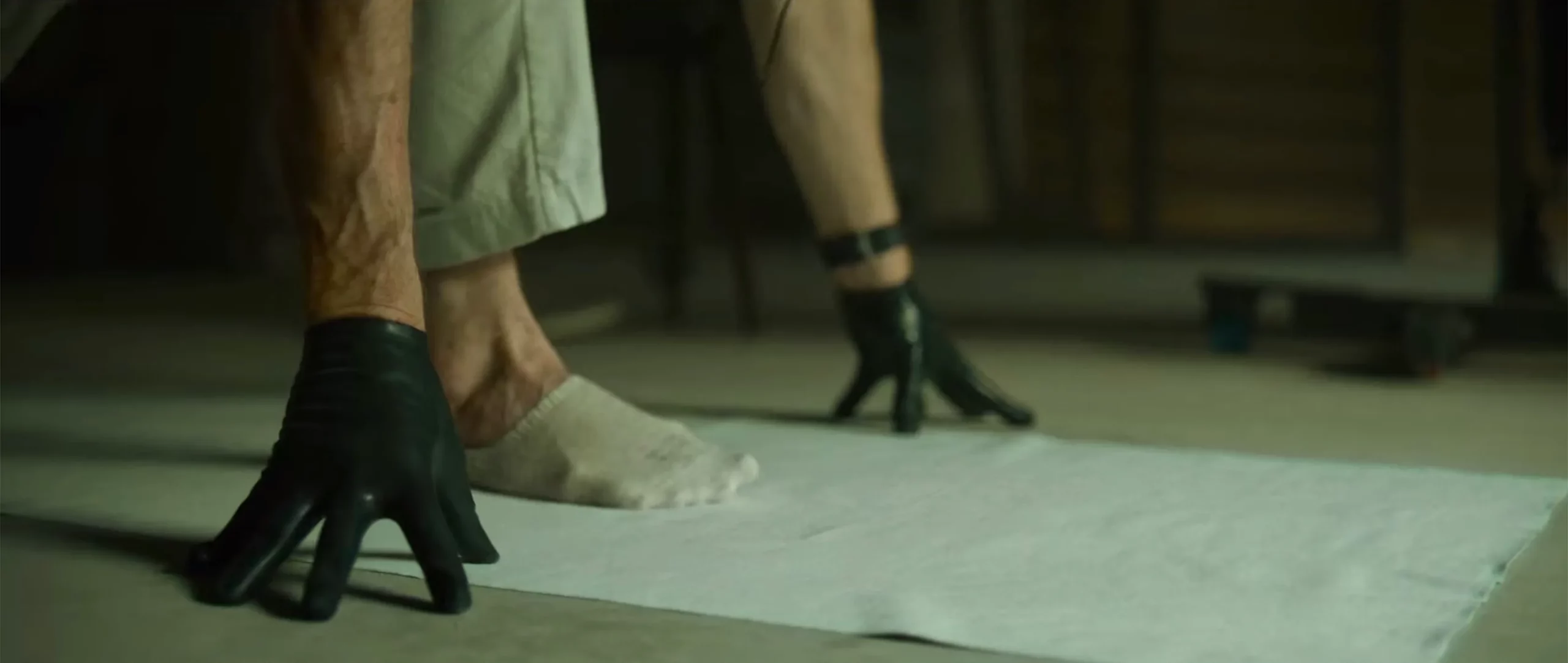
The tagline for David Fincher’s latest film, The Killer, reads “Execution is everything.” It’s as much about the style of the film as it is about the story it tells.
The story is rote. An assassin makes a mistake on a job. The people who hired him then try to kill him to erase the evidence. They fail and harm someone he loves in the process. He pursues them in an attempt to save himself and his loved one. It’s basically the first three Bourne movies collapsed into one film minus the amnesia and with a killer who is totally cool with his chosen profession. Almost all of the film’s dialogue is the titular killer recounting his rules for life as he goes about his deadly business, rules he keeps breaking to his own peril.
The film’s… charm?… is in the execution though. David Fincher is an extreme stylist to the point where his films often feel cold. No. Check that. They are cold. His characters have emotions—rage, mostly—but they exercise/exorcise their emotions via patient, deliberate, methodical action. Fincher’s camera and editing style is in accord. In some of his early films there are moments of electric anxiety, but that’s all gone at this stage in his career. His films move like the swing of a pendulum attached to a clock counting down the minutes to someone’s demise. All chronos, no kairos, to put it in ancient Greek terms, with the subtle implication that this is a terrible way to live and die, but what other way is there? his characters might – MIGHT – just be asking.
Michael Fassbender is the perfect embodiment of Fincher’s point-of-view. And before I go any further let me just say what a delight it is to see Fassbender on screen again. One of the chief joys of movie-watching is watching humans move, and six years is too long to go without getting to watch one of our finest actors move on screen. He’s been off learning to be a Le Mans driver. (And no, I’m not counting 2019’s execrable Dark Phoenix as a movie where we got to watch Michael Fassbender move, much less act.)
The film’s opening scene features Fassbender—the character has no name—doing a yoga routine to stay in shape while he waits out his target. He continues that kind of purposeful movement through everything he does, even peppering in bits of humor along the way, as when he leans out from behind a corner ramrod straight like some kind of cartoon character. In the moments when things get a little hectic, it’s as if a battle has broken out not between two adversaries but between two ways of being and moving in the world.
Is style substance? That’s the question the film is asking. It’s a question posed by art students—and if you’re thinking deeply about cinema, that includes you—the world over. Maybe it is, but maybe it’s a substance of only limited worth. That seems to be the film’s point-of-view given how effective the killer’s style ultimately is. It’s a means to an end, hopefully not “the end,” but style is a substance worth pursuing if the end it gains is something of real value. “Vanity! Vanity! All is vanity! But enjoy the time you have with those you love in this ultimately meaningless life,” as they say, and maybe, just maybe, do it with a little panache.
The tagline for David Fincher’s latest film, The Killer, reads “Execution is everything.” It’s as much about the style of the film as it is about the story it tells.
The story is rote. An assassin makes a mistake on a job. The people who hired him then try to kill him to erase the evidence. They fail and harm someone he loves in the process. He pursues them in an attempt to save himself and his loved one. It’s basically the first three Bourne movies collapsed into one film minus the amnesia and with a killer who is totally cool with his chosen profession. Almost all of the film’s dialogue is the titular killer recounting his rules for life as he goes about his deadly business, rules he keeps breaking to his own peril.
The film’s… charm?… is in the execution though. David Fincher is an extreme stylist to the point where his films often feel cold. No. Check that. They are cold. His characters have emotions—rage, mostly—but they exercise/exorcise their emotions via patient, deliberate, methodical action. Fincher’s camera and editing style is in accord. In some of his early films there are moments of electric anxiety, but that’s all gone at this stage in his career. His films move like the swing of a pendulum attached to a clock counting down the minutes to someone’s demise. All chronos, no kairos, to put it in ancient Greek terms, with the subtle implication that this is a terrible way to live and die, but what other way is there? his characters might – MIGHT – just be asking.
Michael Fassbender is the perfect embodiment of Fincher’s point-of-view. And before I go any further let me just say what a delight it is to see Fassbender on screen again. One of the chief joys of movie-watching is watching humans move, and six years is too long to go without getting to watch one of our finest actors move on screen. He’s been off learning to be a Le Mans driver. (And no, I’m not counting 2019’s execrable Dark Phoenix as a movie where we got to watch Michael Fassbender move, much less act.)
The film’s opening scene features Fassbender—the character has no name—doing a yoga routine to stay in shape while he waits out his target. He continues that kind of purposeful movement through everything he does, even peppering in bits of humor along the way, as when he leans out from behind a corner ramrod straight like some kind of cartoon character. In the moments when things get a little hectic, it’s as if a battle has broken out not between two adversaries but between two ways of being and moving in the world.
Is style substance? That’s the question the film is asking. It’s a question posed by art students—and if you’re thinking deeply about cinema, that includes you—the world over. Maybe it is, but maybe it’s a substance of only limited worth. That seems to be the film’s point-of-view given how effective the killer’s style ultimately is. It’s a means to an end, hopefully not “the end,” but style is a substance worth pursuing if the end it gains is something of real value. “Vanity! Vanity! All is vanity! But enjoy the time you have with those you love in this ultimately meaningless life,” as they say, and maybe, just maybe, do it with a little panache.

Elijah Davidson is Co-Director of Brehm Film and Senior Film Critic. Subscribe to Come & See, his weekly newsletter that guides you through the greatest films ever made, and find more of his work at elijahdavidson.com.
PAW Patrol: The Mighty Movie is kids’ stuff, of course, and it’s satisfactory fare of its kind.